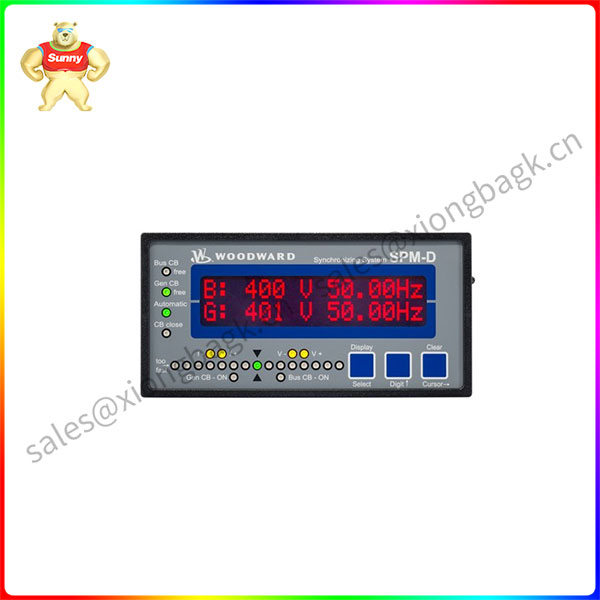The 8440-1666B synchronizer module from Woodward marks another step forward in industrial automation control technology. With its high precision and stability, this module provides a new solution for synchronous control of industrial generator systems.
The 8440-1666B module is part of the Woodward SPM-D11 family of load sharing synchronizer modules and is designed for critical applications that require accurate timing and synchronization, such as power plants, refineries and manufacturing plants. The module is capable of providing precise frequency synchronization and control of two or more alternators or motors, ensuring reliability and accuracy in complex industrial environments.
The module has been designed with harsh environment adaptability in mind, is capable of operating in the temperature range from -40°C to +70°C, and is suitable for altitudes up to 3,000 meters. This strong environmental adaptability allows it to operate stably in a wide range of climatic and geographical conditions across the globe.
The 8440-1666B module supports a variety of synchronization algorithms, including droop, notch, and deadband, which can be set up through various configuration methods such as HMI, ToolKit, and RS232. In addition, it supports a variety of communication protocols including Modbus TCP and DNP3 to facilitate integration and communication with other industrial automation equipment.

8440-1715
The physical design of the module is also very user-friendly, with dimensions of 144 mm x 72 mm x 122 mm and weight of at least 800 g, suitable for DIN rail mounting or panel mounting. It is also equipped with a dual-line LCD interface to provide on-site diagnosis and alarm instructions for the operator, further improving the user’s operating convenience and system maintainability.
The introduction of Woodward 8440-1666B synchronizer module not only enrichis the choice of industrial automation control products, but also provides strong support for improving industrial production efficiency and safety. With the advancement of Industry 4.0, this module is expected to become an important component in the field of industrial automation, contributing to the realization of smarter and more efficient industrial production.
 中文版
中文版




